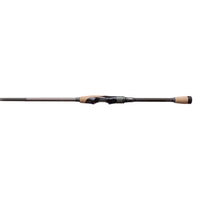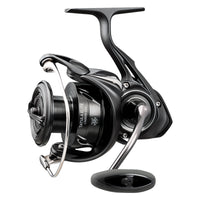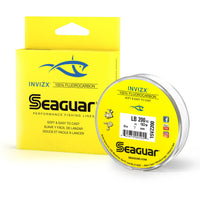Technique Highlight: Dropshot
Published: Updated:
Kipp talks about some of the essentials of Dropshot Fishing.
All Featured Products

Ichikawa CT-5 Drop Shot Hook
$4.29
Jump to 4:08

Owner Cover Shot Worm Hook
$5.79
Jump to 4:30

WOO! Tungsten Invisashot Cylinder Drop Shot Weight - Closed Eye
$4.69 – $7.29
Jump to 4:56
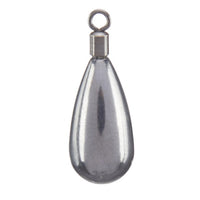
WOO! Tungsten Unpainted Tear Drop Closed Eye Drop Shot Weight
$4.69 – $7.29
Jump to 5:16

Berkley Flat Worm - PowerBait MaxScent
$5.99 – $8.99
$8.99Jump to 5:37

Strike King 3.5" Baby Z-Too Soft Jerkbait
$4.69
Jump to 6:22
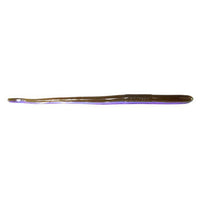
Roboworm 6" Straight Tail Worm
$4.79
Jump to 6:55

Xzone Lures Deception Worm
$4.99
Jump to 7:14
Video Transcript
1. Introduction
"What's going on everybody? In this week's technique highlight, we're talking about a technique near and dear to my heart that being the drop shot."
2. Drop Shot Overview
"When I'm looking to throw a drop shot I'm thinking of higher water temperatures, more pressured bodies of water. In my mind there's two schools of thought, that being an open hook drop shot and then one where your Texas ring and drop shot are, or are, are, are exposing a drop shot."
3. Rods for Drop Shot
"For rods, let's start with the nose hook variety. In this kind of rod you 're typically looking for something a little bit shorter and a little bit lighter. You've got light line, a really light wire hook. This one happens to be the 610 medium light X-pride from Shimano. It's a super popular drop shot rod. It's very soft in the tip, bends all the way throughout the rod. That's going to help you keep those fish pinned, hooked, landed with that smaller tackle. This is a super popular option from Shimano."
"The other school of thought is a Texas rig drop shot. Typically you want something a little bit longer and that's 7 foot to 7 foot 3 range and a little bit more powerful. This is the Jade Python from Mega Bass and the Erochi X10 line. They call it a medium light but it's more of a medium to me. It's got a soft tip but plenty of backbone. So when you're text posing and plastic you have all the backbone you need to get the hook through. That plastic, get them out of the vegetation if they're fishing a weed line or something like that."
4. Reels for Drop Shot
"Moving on to reels. Just about any reel manufacturer will work. The most popular that we've seen are from Shimano and Daiwa. What I'm looking for is a lightweight reel with a great drag. Again you're using a light line. This one from Daiwa is the Tatula Elite spinning reel. This is in the 4000. I recommend either a 3000 or 4000 size reel. You can just have a larger arbor. It picks up line quicker, smoother drag, all that good stuff. So this reel is super light, excellent drag, a felt drag on this one from Daiwa. So that's an awesome option."
"And then from Shimano I went with the Altagra. It's a little bit easier price point. I think they're around 160 or something like that. But it's got a CI4 body. That's a super popular piece of technology that came down from the Stratix CI4 back in the day. Awesome Shimano drag on it. Either of these two options are going to be perfect for a drop shot."
5. Line and Leader Material
"I personally would recommend running straight as your main line. I don't see any benefit really of having a straight fluorocarbon offering. So what I'm looking for in a braid is something around 10 or 8 to 10 pounds, maybe 15 if you want. But something that's an 8 carrier. So power pro super slick V2. It's an 8 carrier braid smooth going through the guides. And same thing with Suffix 832, 8 carrier braid. They last a while. And the big thing with braid is sensitivity. So you use braid as your main line and then get to a fluorocarbon leader in a second. But there's no stretch. You feel everything. It's better in the wind. There's just no downfall really with running a braid as your main line."
"For leader material, we've got a few options. So some manufacturers are now making their own leader material fluorocarbon. So it's specifically designed to have a little bit more stretch. It can be a little bit thinner because it's not being used as a main line. This gold label from CGR is an awesome option. It's a little pricey. You only get 50 yards in this spool. That's a killer option there. And then if you want to just use a filler spool, Sunline Sniper FC or C-Garn Visex. Super popular lines, they're tried and true. And either an 8 pound test. If you 're going with a nose hook drop shot, I'd go with a 6 to 8 pound test depending on how clear your water is. Once you get into that kind of like Texas rig, Texas posed worm, you can bump it up to 10, sometimes even 12 pound line."
6. Hooks and Weights
"We're moving on to hardware. Again, two schools of thought we've talked about it. But for hooks, you're going to look at something like this option from Ichikawa. This is their CT5. It's a super small thin wire hook. This is going to be for nose hooking. So any of your small worms, minnow baits, you can nose hook it. It's going to be free floating, very lightweight. And that's where you don't want to lean towards the lighter line and your more limber rod."
"Another option, one of my favorites here up in Minnesota, we've got a ton of vegetation, is something like this cover shot hook from owner. The VMC makes a Nico hook that works really well too, but it's got a fluorocarbon keeper. And essentially you've Texas rig your plastic and just have the tip of that hook exposed so you can fish clean through vegetation. And you can use bigger line, bigger rod, and have better success getting the fish out of that vegetation."
"For weight, you're obviously going to need a weight when you're throwing a drop shot. In my mind, there are two options. I use a both tungsten. I prefer tungsten, it's more sensitive. It's a smaller package. But a cylinder drop shot weight. This one I really like around grass. It comes in and out of grass really well. And then something like a teardrop. This is kind of the best of both worlds. There's also like a ball style, but I prefer a teardrop or a cylinder. The teardrop, if you're on hard cover, has a larger surface area on the bottom. You get a little bit more feedback throughout your rod. So I would say vegetation, you go with the cylinder, if you're on hard bottom, try out that teardrop."
7. Baits
"And lastly, let's talk about baits. There are three categories I kind of break them into. That would be your minnow profiles, your small worms. And then for Texas rigging, a large six-inch finesse worm. So probably the number one drop shot bait that we've seen over the last three, four years has been the flat worm from Berkeley. This is their Maxcent flavor. It's an awesome profile. Proven fish catcher. This works from small mouth to large mouth. Doesn't really matter. This one's going to get bit. This is one night you're typically going to nose hook. Use that smaller hook and lighter line. But they do make a 4.25 version that you could get away with a small Texas rig, too. But that's one of our most popular drop shot baits."
"And sticking with the smaller side of things, a minnow profile. The baby Z2 has emerged as one of the best minnow profiles for drop shot fishing. Again, a smaller hook. Some people have actually found success threading on a Nico hook. That's one technique that I didn't mention here. But if you take a size 2 or even smaller Nico hook, you can actually thread like you would on the back of a jig or something. Thread this bait on and have the hook stick out the top. Great option there, too, from Strike King."
"And then one of my favorites is a 6 inch finesse worm. So this is from Robo Worm and Morning Dawn. Really popular color and really popular bait. But this one you're going to more often than not be Texas rig in this. With a size 1.2 odd cover shot hook or a Nico hook. This or the X Zone Deception Worm is another one I really like. Awesome profile for one year round vegetation."
8. Conclusion
"So that's kind of a breakdown of the drop shot technique as a whole. Hope you learned something today and go fishing. [Music] Thanks for watching."

